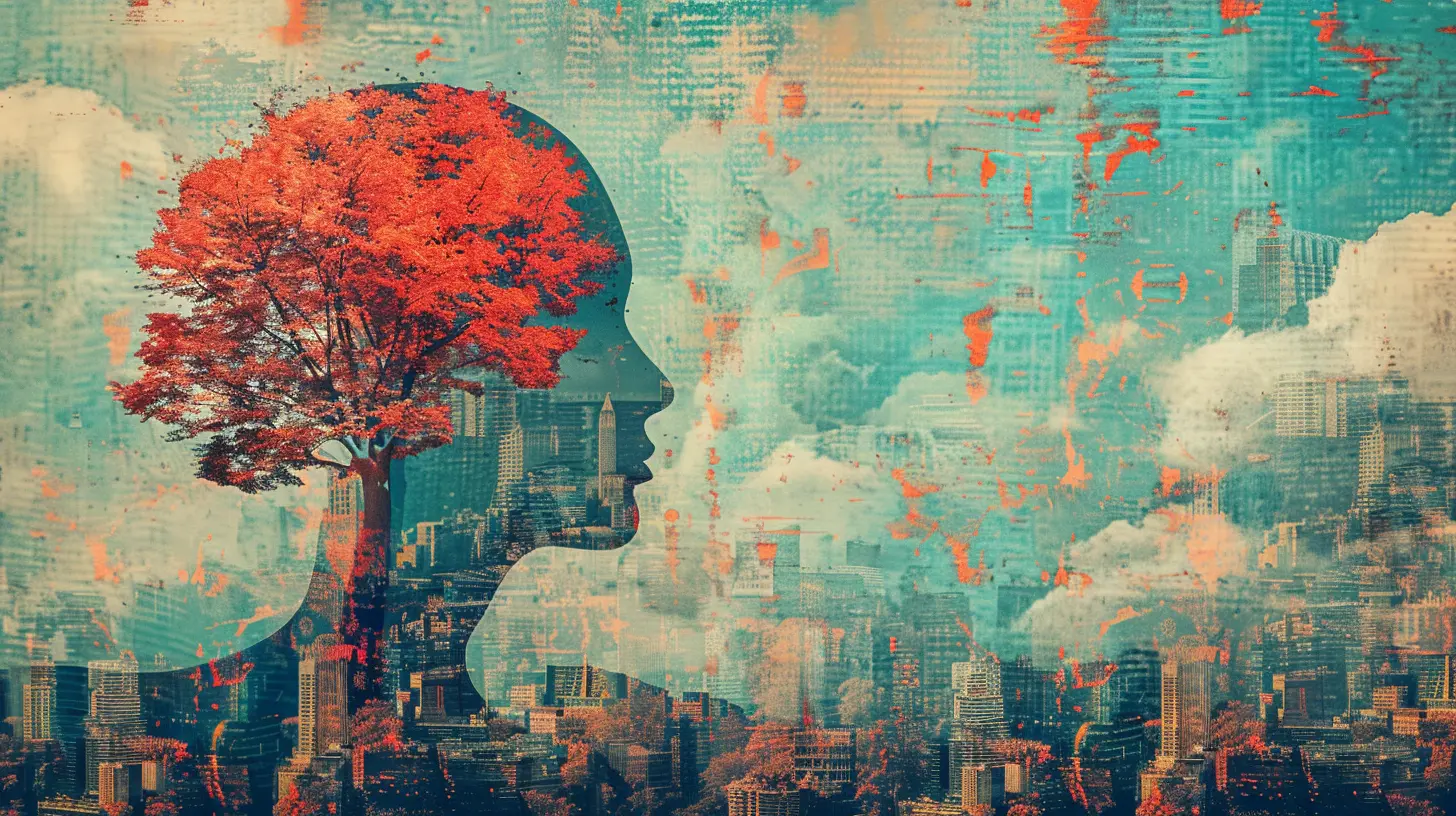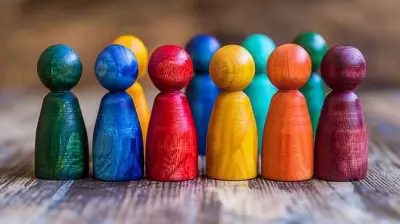Understanding the Mental Health Impact of Major World Events
23 July 2025
Let’s face it — the world can be a pretty wild place. Just when we think we’ve got a grasp on things, something massive comes along and rattles everything. Whether it's a global pandemic, political unrest, a financial crisis, or even natural disasters, major world events tend to shake us — not just physically or economically, but deep inside, in our minds and hearts.
But how exactly do these events affect our mental health? Why do some people bounce back while others feel like they're stuck in an emotional quicksand? And most importantly, what can we actually do about it?
Let’s dive deep into the psychology behind the mental toll of world-shifting events. Don’t worry — I’m keeping it simple, down-to-earth, and packed with insights you can actually use.
Why World Events Mess with Our Heads
Honestly, it's no surprise that big global events trigger stress, anxiety, and even depression. Our brains are wired for survival, not 24-hour news cycles. We crave stability — patterns, control, and predictability. Major world events, especially the unpredictable ones, yank the rug out from under us.Think about the COVID-19 pandemic. In the span of weeks, millions of people went from planning vacations and weddings to fighting for toilet paper and wiping down groceries. That sudden shift? It’s enough to send anyone into a mental tailspin.
The Role of Uncertainty
At the core of most mental strain during global events is uncertainty. When we don't know what's coming next, our brains work overtime to try and fill in the blanks. It’s like your mind is constantly refreshing a browser that never loads — exhausting, right?Loss of Control
Another big player here is a feeling of helplessness. During major crises, we can’t control outcomes or even day-to-day plans. That loss of agency can quickly lead to feelings of hopelessness, especially for those already vulnerable to mental health issues.
Common Mental Health Effects of Global Crises
So, how exactly do these events show up in our mental and emotional world? Here’s a breakdown of the most common ways they can hit us.1. Anxiety and Panic
This one’s a no-brainer. Fear, uncertainty, and a steady diet of worst-case scenarios can spike anxiety levels. Suddenly, your heart’s racing, your thoughts won’t slow down, and sleep? Forget about it.Some people even experience panic attacks — moments when it feels like the world is closing in, even if you're just sitting on your couch.
2. Depression and Hopelessness
When world events start to feel never-ending (pandemic, anyone?), it’s easy to lose hope. That sense of "What’s the point?" can creep in. Depression isn’t just sadness — it’s a fog that makes everyday tasks feel impossible.3. PTSD and Trauma
Some events are so intense — think war, natural disasters, acts of terrorism — they leave a lasting wound. Post-Traumatic Stress Disorder (PTSD) is more common than we often think. You don’t need to be a soldier to experience trauma. If you watched a city burn live on the news or feared for a loved one’s life during a pandemic, yeah, that can leave scars.4. Social Withdrawal
When the world feels unsafe, some people retreat. They stop connecting with friends, avoid crowds, or just shut down emotionally. This isolation can be both a symptom and a cause of worsening mental health.5. Disrupted Sleep and Fatigue
Our minds need rest to process emotions, but when we’re filled with anxiety or fear, sleep often takes a hit. Insomnia, vivid dreams, or just feeling exhausted all the time — these are signs your mental health is under pressure.
The COVID-19 Pandemic: A Mental Health Wake-Up Call
You really can’t talk about world events and mental health without mentioning COVID-19. This global crisis changed everything — how we live, work, interact, and think about health.For many people, it was the first time they truly felt the weight of a world event. The lockdowns, the fear of contagion, the economic strain, the constant news bombardment — it all came crashing down at once.
The Isolation Factor
Social distancing may have saved lives, but let’s be real — it also created an epidemic of loneliness. Humans are social creatures. Being forced apart hit some people harder than the virus itself.Grief on a Global Scale
COVID-19 didn't just bring illness; it brought loss. Deaths, missed milestones, lost jobs — the grief was (and still is) enormous. Unlike typical grief, this was collective and ongoing, making it harder for people to process or find closure.The Rise in Mental Health Awareness
Here’s the silver lining – the pandemic put mental health in the spotlight. More people started talking about therapy, self-care, and emotional well-being. It became okay to say, “I’m struggling,” without shame.
The Influence of Media and the “24/7 Crisis Machine”
Let’s talk about the media for a minute. We’re constantly plugged in — scrolling headlines, watching breaking news, and obsessively checking stats. And guess what? All that doomscrolling is wrecking our emotional space.Information Overload
We weren’t built to process every bad thing happening in the world all at once. But thanks to smartphones and social media, we do — every day. That constant exposure to distressing news can desensitize us or, worse, leave us feeling chronically anxious.Social Media Amplification
Social platforms can be a double-edged sword. Sure, they keep us informed and connected. But they also magnify fear, misinformation, and outrage. If you're constantly seeing people spiral in your feed, chances are you’ll start spiraling too.Who’s Most at Risk?
While anyone can be affected, certain groups tend to bear the brunt more than others.Children and Teenagers
Young people don’t always have the emotional tools to process complex events. Oftentimes, they take cues from adults around them. If the grown-ups are panicking, kids usually feel that tension acutely.Frontline Workers
Healthcare workers, emergency responders, and essential staff often face the crisis head-on. The stress, burnout, and trauma they experience are on a whole different level.People with Preexisting Mental Health Conditions
If you already struggle with anxiety, depression, or trauma, a global crisis can be like throwing gasoline on a fire.Low-Income Communities
Let’s not ignore the socioeconomic angle. Financial stress, lack of resources, job insecurity — these all amplify mental health challenges.Coping Strategies That Actually Help
Okay, enough doom and gloom. Let’s talk solutions. How can we protect or rebuild our mental health when the world feels like it’s falling apart?1. Limit Media Consumption
You don’t need to scroll every hour to stay informed. Choose a trusted source and check in once or twice a day. Your nervous system will thank you.2. Stay Connected (Even Virtually)
Reach out. Talk to friends. Join an online group. Humans need connection like plants need sunlight. Don’t isolate yourself, even if the world says “stay at home.”3. Move Your Body
Exercise isn’t just about looking good — it helps regulate mood, reduce stress hormones, and release feel-good chemicals. Even a 20-minute walk can work wonders.4. Practice Mindfulness or Meditation
Mindfulness brings your attention to the present — not the past you can't change or the future you can't predict. Apps like Headspace or Calm can be a great place to start.5. Keep a Routine
When everything else feels chaotic, sticking to a basic routine — meals, sleep, work, downtime — gives your brain a sense of safety and normalcy.6. Seek Professional Help
Let’s kill the stigma: therapy is for everyone. Talking to a counselor or mental health professional can provide invaluable support, especially during times of crisis.Building Long-Term Mental Resilience
Here’s the truth — we can’t stop bad things from happening. But we can build resilience. Think of resilience as your emotional immune system. It’s not about being unaffected; it’s about bouncing back.Strengthen Your Support System
Surround yourself with people who uplift you, who listen and care. Relationships are one of the biggest predictors of mental health.Focus on What You Can Control
Can’t fix the world? Fair enough. But you can control your reactions, your habits, your media intake, and your self-care. Small wins matter.Practice Gratitude
Yeah, it sounds cheesy — but it works. Focusing on things you’re grateful for rewires your brain to see light, not just darkness.Final Thoughts
Major world events can leave us feeling shaken, scared, and overwhelmed — and that’s okay. You’re a human, not a robot. If you’re feeling the weight of the world, you’re not alone. The good news is, while we can’t change the outer world overnight, we can absolutely take steps to care for our inner one.Mental health isn’t a destination. It’s a daily practice. So check in with yourself, reach out for help when needed, and take it one day at a time. You’ve got this.
all images in this post were generated using AI tools
Category:
Mental Health EducationAuthor:

Jenna Richardson
Discussion
rate this article
1 comments
Aelith Rogers
This article compellingly highlights the undeniable link between major world events and mental health. Acknowledging these impacts is crucial for fostering resilience and promoting effective support systems in our communities.
August 10, 2025 at 4:03 AM

Jenna Richardson
Thank you for your insightful comment! I completely agree that recognizing the mental health impacts of global events is essential for building resilience and enhancing community support.


